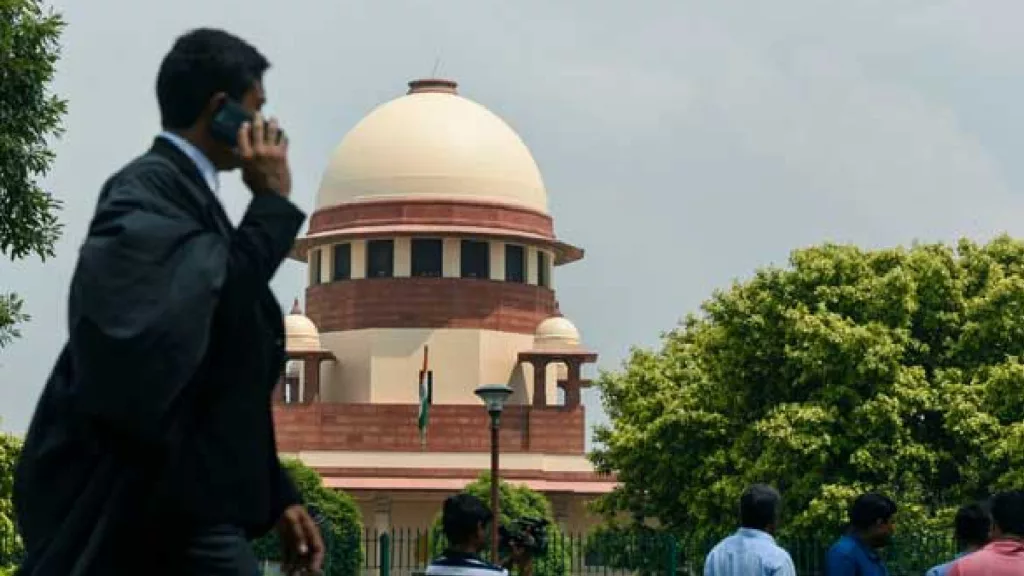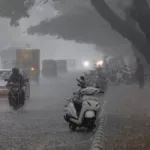In a pivotal ruling issued on Friday, the Supreme Court of India has enacted comprehensive nationwide guidelines aimed at bolstering mental health safeguards, mandating professional counsellors, and establishing robust regulatory frameworks across all educational institutions. This decisive move is a direct response to a worrying surge in student suicides across the country.
Justices Vikram Nath and Sandeep Mehta delivered the ruling, which encompasses a broad spectrum of educational entities, including private coaching centres, schools, colleges, universities, training academies, and hostels. The court unequivocally characterized the escalating crisis as a “systemic failure that cannot be ignored.”
The judgment stressed the gravity of the situation, asserting that it necessitates constitutional intervention. The court exercised its powers under Article 32 of the Constitution to enforce fundamental rights, declaring its pronouncement as the law of the land under Article 141.
Tragic Catalyst for Change
This significant ruling was spurred by the tragic suicide of a 17-year-old NEET aspirant, identified as Ms. X, at a hostel on July 14, 2023, while she was preparing for medical entrance examinations at Aakash Byju’s Institute in Visakhapatnam. The Supreme Court has now ordered the Central Bureau of Investigation (CBI) to take over the probe into her death. This follows a challenge by the girl’s father to an Andhra Pradesh High Court order that had dismissed his plea for a CBI investigation.
The bench highlighted that the distress among young people is “emblematic of a deeper, structural malaise that afflicts India’s educational ecosystem.” It cited “deeply distressing” data from the National Crime Records Bureau (NCRB), which reported 170,924 suicide cases in India in 2022. A staggering 7.6% of these (approximately 13,044) were student suicides, with 2,248 deaths directly attributed to examination failures.
“These figures, taken in conjunction with emerging patterns of distress in educational institutions, coaching centers, and residential educational institutions, point to a systemic failure in addressing students’ emotional and mental health needs,” the court observed.
Key Directives for Educational Institutions
The newly issued guidelines require all educational institutions to adopt uniform mental health policies. These policies must be grounded in existing government initiatives, including the UMMEED draft guidelines, the MANODARPAN mental health program, and the National Suicide Prevention Strategy. Crucially, these policies must be publicly accessible and updated annually.
The court noted a “legislative and regulatory vacuum in the country with respect to a unified, enforceable framework for suicide prevention of students in educational institutions, coaching centers, and student-centric environments,” thereby justifying its proactive directions.
The Supreme Court’s key mandates include:
- Mandatory Mental Health Professionals: Institutions with over 100 students must appoint at least one qualified mental health professional (psychologist, counsellor, or social worker). Smaller institutions are required to establish formal referral linkages with external mental health experts.
- Student Mentorship: Mentors or counsellors must be assigned to smaller groups of students to ensure consistent support, particularly during examination periods and critical transition phases.
- Regulation of Coaching Institutes: Coaching institutes are specifically directed to cease practices such as batch segregation based on academic performance, public shaming, and setting unrealistic academic targets.
- Prominent Display of Helplines: Helpline numbers, including Tele-MANAS suicide prevention services, must be prominently displayed in hostels, classrooms, and common areas.
- Mandatory Staff Training: All teaching and non-teaching staff must undergo mandatory training at least twice a year. This training will cover identifying warning signs, providing psychological first aid, and establishing referral protocols. The training must also encompass sensitive engagement with vulnerable groups, including students from SC, ST, OBC, and EWS categories, LGBTQ+ communities, students with disabilities, and those experiencing trauma or bereavement.
- Confidential Reporting Mechanisms: Institutions must establish confidential mechanisms for reporting sexual assault, ragging, and harassment based on caste, gender, disability, religion, or sexual orientation, ensuring immediate access to psycho-social support.
- Institutional Accountability: The court warned that any failure to act promptly in cases leading to self-harm or suicide would constitute “institutional culpability” with legal consequences.
- Parental Involvement: Parents and guardians are to be actively involved through regular sensitization sessions aimed at reducing undue academic pressure and fostering supportive home environments.
- Holistic Development: Institutions must integrate mental health literacy and life skills into orientation programs and extracurricular activities. To alleviate academic pressure, institutions are required to prioritize extracurricular development, periodically review examination formats, and broaden the definition of success beyond mere ranks and test scores.
- Structured Career Counselling: Inclusive career counselling must be provided to both students and parents to facilitate interest-based choices and reduce pressure towards conventional career paths.
- Enhanced Safety in Residential Facilities: Residential facilities must implement enhanced physical safety measures, including tamper-proof ceiling fans and restricted rooftop access, to deter impulsive acts of self-harm.
Implementation and Oversight
Major coaching hubs across the country, including Kota, Jaipur, Sikar, Chennai, Hyderabad, Delhi, and Mumbai, which witness a significant influx of students, have been specifically identified for the implementation of heightened preventive and counselling infrastructure.
States and Union Territories have been given two months to notify rules mandating the registration and student protection norms for private coaching centres. District-level monitoring committees, headed by District Magistrates, will oversee the implementation, conduct inspections, and handle complaints.
The Union government has been granted 90 days to file a compliance affidavit detailing the steps taken for implementation, the status of regulatory rule-making for coaching centres, coordination mechanisms with state governments, and timelines for the final report of the National Task Force.
Despite existing Central initiatives, the court emphasized the “legislative and regulatory vacuum” that necessitated this immediate judicial intervention under India’s constitutional and international mental health commitments. The next hearing in this significant case is scheduled for October 27.







